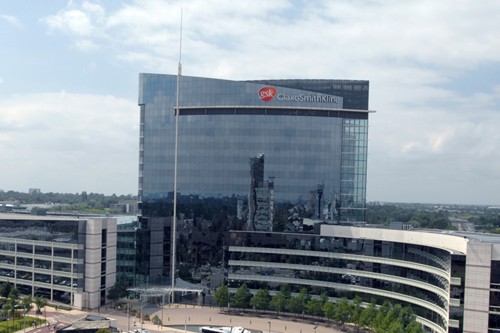
GlaxoSmithKline announced another wave of restructuring yesterday – focused on its European operations – after reporting sales and operating profit fell in 2012.
Among the measures under consideration is the sale of GSK’s Ribena and Lucozade drink brands, which have sales of around £400m ($627m) a year, with analysts at Panmure Gordon suggesting the business could be worth as much as £1.18bn.
GSK is exploring ways to expand the products from their current position as largely UK brands with penetration in continental Europe to global status, which could include retaining them in-house and investing in growth.
Nevertheless, beverage companies such as Suntory, Barr Britvic Soft Drinks and Pepsi could be interested in the products, according to Panmure Gordon, and GSK’s CEO Sir Andrew Witty said the investment banking community had been on the phone expressing interest within minutes of the announcement.
The latest ‘change programme’, which was first set in motion a year ago, now envisages annual cost savings of £1bn by 2016 at a cost of £1.5bn to implement.
Sir Andrew said on the firm’s annual results conference call that the programme will focus on the reducing the size of its European organisations – including headcount – and eliminate areas of duplication.
Much of the impact will be felt in the selling, general and administration (SG&A) area, and Sir Andrew said net employment in GSK’s home market of the UK is likely to increase thanks to its manufacturing investment plans in the country.
The comments came against a backdrop of a 3 per cent decline in sales for 2012 to £26.4bn, with Europe continuing to be affected by austerity measure, while core earnings per share were down 2 per cent to £112.7.
In the fourth quarter, sales fell 3 per cent to £6.8bn – a little below analyst estimates – while pharma sales were flat.
Pricing pressure affected GSK’s largest product – asthma and chronic obstructive pulmonary disease (COPD) drug Seretide/Advair (salmeterol and fluticasone) – offsetting volume gains and resulting in a 1 per cent decline to £1.3bn in the quarter, while Avandia (rosiglitazone) continued to decline in the face of generic competition, dropping 85 per cent to just £7m in the quarter.
On the plus side, newer products such as Benlysta (belimumab) for lupus and childhood vaccine Infanrix/Pediarix made gains. Benlysta sales more than doubled in the quarter compared to last year, reaching £29m, while Infanrix/Pediarix grew 34 per cent to £235m.
Meanwhile, GSK also said that it expects late-stage trial results on 14 projects in 2013 and 2014, including nine new drugs and vaccines.
It is also anticipating regulatory decisions on six drugs, namely respiratory candidates Anoro (umeclidinium bromide/vilanterol) and Breo (vilanterol/fluticasone), dolutegravir for HIV, dabrafenib and trametinib for skin cancer, and albiglutide for type 2 diabetes.
Sir Andrew said the company has now started looking for a commercialisation partner for albiglutide for the US and EU markets, as GSK doesn’t have the infrastructure in place for the product and lacks the pipeline in diabetes to warrant investing in this area.




